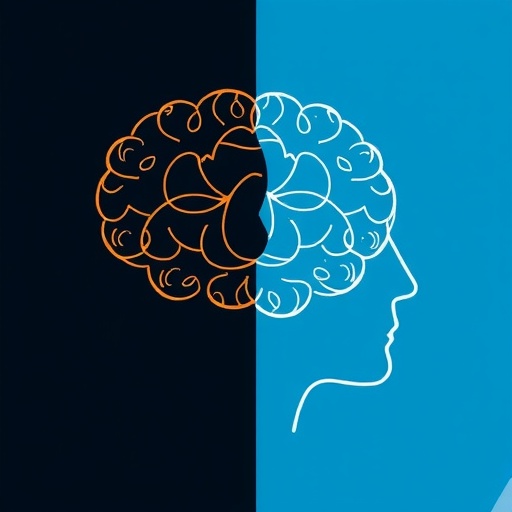In the increasingly complex tapestry of modern economies, unemployment remains a persistent and multifaceted challenge. A recent groundbreaking study by Li, Jiang, and Madni, published in BMC Psychology, delves into the intricate relationship between unemployment and its far-reaching psychological and socio-economic repercussions. This exploratory analysis sheds illuminating light on the profound distress experienced by individuals facing unemployment and the cascading socio-economic consequences that often ensue.
Unemployment, often reduced to a mere statistical figure, encapsulates much more than a temporary economic setback. The study reveals that psychological distress, manifesting as anxiety, depression, and diminished self-worth, emerges as an inseparable companion to joblessness. This distress not only undermines individual well-being but also triggers a ripple effect impacting social networks and community health. The authors employ advanced psychometric tools and socio-economic modeling to decode these complex interactions, emphasizing the need to treat unemployment as both a mental health issue and an economic challenge.
Central to the study’s analysis is the exploration of how unemployment exacerbates socio-economic disparities. The authors highlight that job loss disproportionately affects vulnerable populations, intensifying pre-existing inequalities. Through comprehensive data analysis, the research reveals how reduced income, loss of social status, and diminished access to resources collectively feed into a vicious cycle of hardship and psychological decline. This nexus of factors creates a feedback loop that hampers recovery and reintegration into the workforce.
The methodology underpinning this research is noteworthy for its integrative approach. Li, Jiang, and Madni amalgamate qualitative interviews with rigorous quantitative surveys to capture a multifaceted picture of unemployment’s toll. Psychometric assessments are augmented by economic data streams, allowing for a nuanced understanding of how mental health outcomes correlate with socio-economic indicators such as income level, education, and social support systems. The result is a richly textured analysis that bridges psychological theory and economic realities.
One of the pivotal findings concerns the role of psychological resilience and social capital in mediating the negative effects of unemployment. The study underscores that individuals with robust social networks and adaptive coping mechanisms exhibit significantly lower levels of distress. This insight points to the critical importance of community support programs and mental health services aimed at bolstering resilience in at-risk populations. By fostering social capital, interventions can potentially mitigate unemployment’s bleakest consequences.
The timing of the research is particularly relevant given the global economic turbulence following recent crises. Unemployment rates have soared in many sectors, with pervasive uncertainty fueling psychological strain. Li and colleagues articulate how the pandemic’s socio-economic fallout has magnified these mental health challenges, underscoring a pressing need for integrated policy responses that address employment and psychological well-being concurrently.
A salient feature of the study is its emphasis on the bidirectional relationship between psychological distress and economic outcomes. Unemployment induces mental health decline, which in turn reduces individuals’ motivation and ability to seek new employment opportunities. This downward spiral is exacerbated by stigma and discrimination, further isolating affected individuals. The research advocates for proactive mental health interventions as essential components of employment programs, aiming to break this cyclical pattern.
Importantly, the authors identify heterogeneity in responses to unemployment based on demographic variables such as age, gender, and socio-economic background. Younger individuals often face increased uncertainty about their career trajectories, while older workers experience greater difficulty re-entering the labor market. Women, particularly single mothers, grapple with compounded stressors due to caregiving responsibilities. These nuances underscore the necessity of tailored support services that reflect demographic realities and specific vulnerabilities.
The study also takes a critical look at public policy frameworks surrounding unemployment benefits and social safety nets. Li and colleagues argue that existing programs often fall short in addressing the psychological dimension of unemployment. Rather than viewing unemployment solely through the lens of economic compensation, they call for holistic strategies that integrate mental health care, job retraining, and social reintegration. This progressive stance promises more sustainable outcomes and fosters human dignity amid economic adversity.
Furthermore, the authors explore technological innovation’s double-edged role in the unemployment-psychological distress nexus. Automation and digitization, while driving economic efficiency, have contributed to job displacement and skill mismatches. Yet, technology also offers novel avenues for mental health support, such as teletherapy and digital peer networks. By leveraging these tools, policy-makers and practitioners have new means to deliver scalable interventions tailored to unemployed populations.
This research presents a clarion call for interdisciplinary collaboration. Addressing the intertwined psychological and socio-economic challenges of unemployment requires concerted efforts from economists, psychologists, social workers, and public health experts. The authors envision a future where integrated data analytics and personalized interventions pave the way to more resilient labor markets and healthier societies.
In conclusion, Li, Jiang, and Madni provide a deeply insightful exploration into the pervasive psychological distress triggered by unemployment and its deleterious socio-economic effects. Their research contributes compelling evidence that unemployment is not merely a matter of lost income but a complex social phenomenon that demands multifaceted solutions embedding mental health into economic policy. As global economies grapple with instability, this study offers a vital roadmap for stakeholders aiming to alleviate distress and foster economic recovery.
The implications of this work extend beyond academic discourse; they resonate powerfully with real-world policy-makers and mental health professionals seeking to mitigate the silent epidemic of psychological suffering entwined with unemployment. By illuminating how distress undermines economic resilience, the study advocates for a paradigm shift in how societies conceptualize and respond to joblessness in the 21st century.
As the world navigates the evolving landscape of work, this research stands as an essential contribution to understanding and addressing one of the most pressing social challenges of our time. Unemployment’s psychological scars, once invisible and unaddressed, are now being brought to light with clarity and urgency, opening pathways toward healing and socio-economic stability.
Subject of Research: Psychological distress and socio-economic consequences associated with unemployment.
Article Title: Psychological distress and socio-economic consequences of unemployment: an exploratory analysis.
Article References:
Li, X., Jiang, M. & Madni, G.R. Psychological distress and socio-economic consequences of unemployment: an exploratory analysis. BMC Psychol 13, 1225 (2025). https://doi.org/10.1186/s40359-025-03518-x
Image Credits: AI Generated




